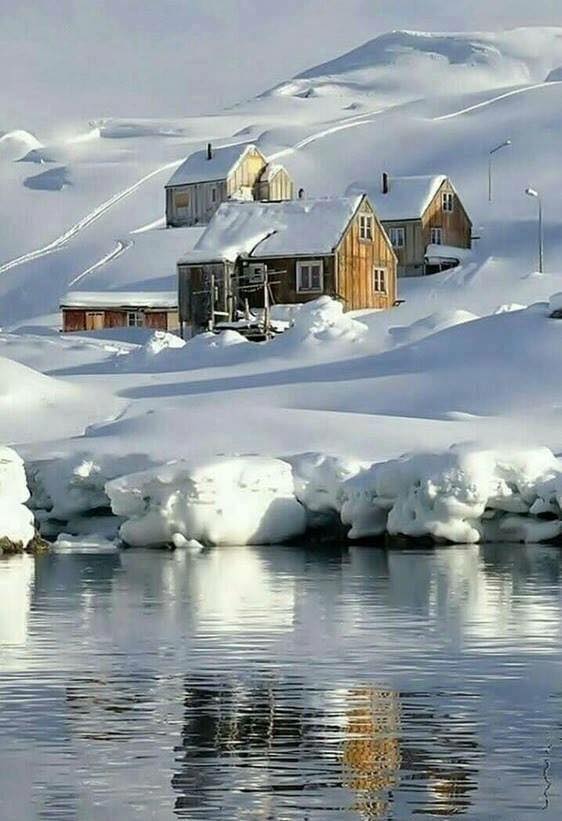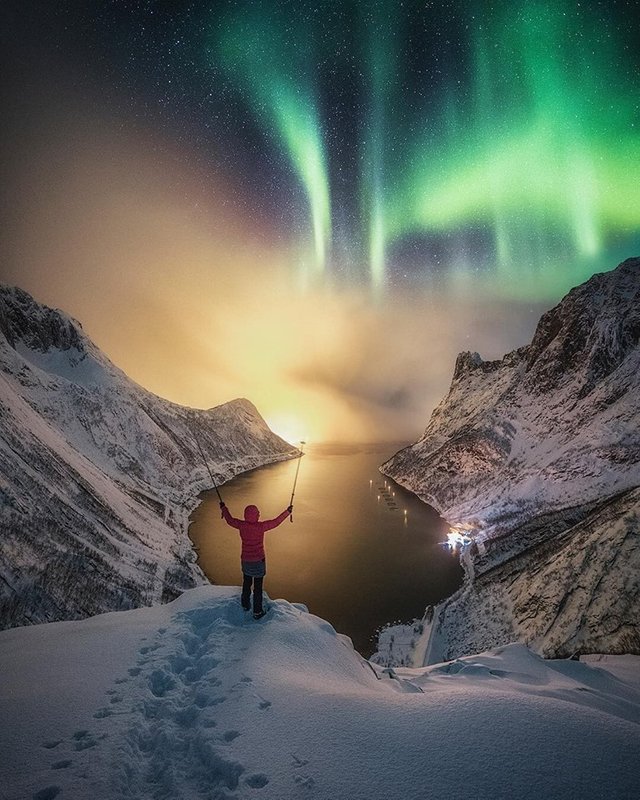Norway

![Norvegia1.jpg]Norwegian (Norwegian Loudspeaker.svg Norge (Bokmål) or Loudspeaker.svg Noreg (Nynorsk)), the official Kingdom of Norway, is a sovereign and unitary state governed by a monarchy, whose territory comprises the western part of the Scandinavian Peninsula plus the island Jan Mayen and the Svalbard Archipelago. [A] The Antarctic Petru I Island and Bouvet Island in the sub-Antarctic are dependent territories and are not considered to be parts of the Kingdom. Norway also claims an Antarctic section, known as Queen Maud's Land. Until 1814, the Kingdom also included the Faroe Islands (1035), Greenland (1261) and Iceland (1262), and until 1468 also owned the Shetland and Orkney Islands.( )
)
Norway has a total area of 385,252 square kilometers (148,747 sq mi) and a population of 5,213,985 (May 2016). [4] The country has a long frontier to the east with Sweden (1,619 km or 1,006 km long). Norway is bordered by Finland and Russia to the north-east and across the Skagerrak Strait to the south with Denmark. Norway has an extensive coastline in the North Atlantic and the Barents Sea.
King Harald V of the German dynasty of Glücksburg is the current King of Norway. Erna Solberg became prime minister in 2013, replacing Jens Stoltenberg. Constitutional monarchy, in Norway the power in the state is shared between Parliament, the Cabinet and the Supreme Court, as established by the Constitution of 1814 (d). The Kingdom was formed by the merger of several small kingdoms. Traditionally, the Kingdom has been in existence since 872 (d), and the list of Norse monarchs encompasses over sixty kings and princes. Norway is divided both politically and administratively on two levels: counties and municipalities. The Sami people have a certain autonomy and influence over their traditional territories, Sami Parlament (d) and Finnmark (d). Norway maintains close ties with the European Union and the United States of America, and is a founding member of the United Nations, NATO, the Council of Europe, the Antarctic Treaty and the Nordic Council; member of the European Economic Area, WTO and OECD; and is also part of the Schengen area.
Norway is divided both politically and administratively on two levels: counties and municipalities. The Sami people have a certain autonomy and influence over their traditional territories, Sami Parlament (d) and Finnmark (d). Norway maintains close ties with the European Union and the United States of America, and is a founding member of the United Nations, NATO, the Council of Europe, the Antarctic Treaty and the Nordic Council; member of the European Economic Area, WTO and OECD; and is also part of the Schengen area.
The country maintains a combination of market economy and state on the Northern Socialist model (d), where there is a universal health system (d) and a comprehensive social assistance system. Norway has vast reserves of oil, natural gas, ores, timber, seafood, freshwater, and hydropower. The oil industry accounts for about a quarter of the country's gross domestic product (GDP) [5]. Per capita (d), Norway is the world's largest producer of oil and gas outside the Middle East. ( ) The country has the fourth largest income per capita (d) in the world in World Bank and IMF rankings. [8] According to the GDP per capita (2015 estimate) which includes territories and some regions, Norway ranks eleventh. [9] From 2001 to 2006, [10] and then again from 2009 to 2015, Norway had the highest Human Development Index in the world. [11] [12] [13] [14] Norway has been at the forefront of the Legacy of Prosperity Index (d) for seven years in a row, by 2015. [15] Norway ranks first in the OECD Better Life Index, the Public Integrity Index, and the Index of Democracy.
) The country has the fourth largest income per capita (d) in the world in World Bank and IMF rankings. [8] According to the GDP per capita (2015 estimate) which includes territories and some regions, Norway ranks eleventh. [9] From 2001 to 2006, [10] and then again from 2009 to 2015, Norway had the highest Human Development Index in the world. [11] [12] [13] [14] Norway has been at the forefront of the Legacy of Prosperity Index (d) for seven years in a row, by 2015. [15] Norway ranks first in the OECD Better Life Index, the Public Integrity Index, and the Index of Democracy.




I was in Oslo post September. It was amazing but there was no snow, mostly rainy. I would be nice to see this natural beauties by naked eye really :)
Great natural beauty
tnx
Wow lovery nature photo upvote ma post
tnx
nice place to visit
tnx
You got a 11.11% upvote from @yourwhale courtesy of @ionutciobanu!
WOW!
You got a 2.03% upvote from @upmewhale courtesy of @ionutciobanu!
This post has received a 3.57 % upvote, thanks to: @ionutciobanu.